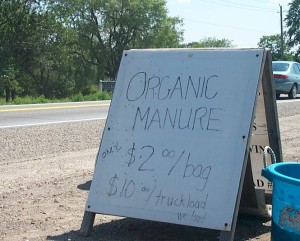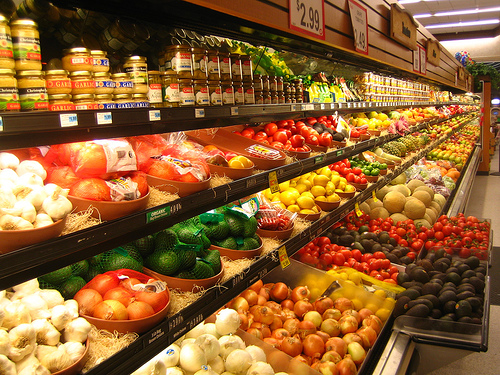Irwin Pronk of HACCP By Design, writes in this contributed piece:
Conducting food safety audits is hard work. It is a very difficult task requiring technical background, industry experience and people skills (especially in stressful environments).
There are a number of problems with third-party audits these days, and each in its own way undermines the effectiveness of audits as food safety tools.
One of the main dangers is that HACCP certifications can become mere “optics,” where the audit is not about reality, but about the “show” that was  put on for the auditor for those two or three days. With the pressure of an audit, it is too easy for plant staff and management to forget that the goal of food safety programs is simply not the short-term one of passing the audit, but the ultimately more important one of producing safe food for the consumer. Easily said, but the reality of day-to-day operations in a food plant can make the result very different from the principle. For one thing, an audit must get past the enthusiastic descriptions of a few people and assess the food safety attitude, or culture, of the entire group. Any blame there might be for the thoroughness (or lack thereof) of audits obviously does not rest entirely with auditors, but must also be shouldered by Plant Managers and QA Managers who may feel it necessary to create these “shows” for the auditors without realising how putting on a “show” sends the plant the message that food safety is just a game. Perhaps that is why we see so little progress in reducing recalls and protecting the consumer.
put on for the auditor for those two or three days. With the pressure of an audit, it is too easy for plant staff and management to forget that the goal of food safety programs is simply not the short-term one of passing the audit, but the ultimately more important one of producing safe food for the consumer. Easily said, but the reality of day-to-day operations in a food plant can make the result very different from the principle. For one thing, an audit must get past the enthusiastic descriptions of a few people and assess the food safety attitude, or culture, of the entire group. Any blame there might be for the thoroughness (or lack thereof) of audits obviously does not rest entirely with auditors, but must also be shouldered by Plant Managers and QA Managers who may feel it necessary to create these “shows” for the auditors without realising how putting on a “show” sends the plant the message that food safety is just a game. Perhaps that is why we see so little progress in reducing recalls and protecting the consumer.
Too often, auditors spend a disproportionate amount of time reviewing documents (procedures and records) and comparatively little time in the plant. A contact at one plant recently told me of a three-day audit where the auditor spent only three hours in the plant.
If some auditors spend too little time in the plant, others skew the results of their third-party audits by inflating scores, recording evaluations much higher than the plants deserve and giving the wrong impression of their performance. The difficulty for auditors is this: if the plant staff and management have been steadily making improvements, they naturally expect their score to rise; on the other hand, the standard also gets tougher every year, and so, even with all their improvements, they may not really deserve a higher score. The pressure on the auditor to “improve” the score can be considerable. It takes a strong person not to give in, but many do. Over time this inflation can result in some very strange scores. For example, there have been cases where a mediocre score for an audit is 92.5 percent, while a good score is 96.6 percent. What happened to the concept of the “average” being 65 percent? Sure, everyone wants to look good, but …
The most consistent complaints of auditors is that they are inconsistent and too often make “mountains out of mole-hills.” With the number of audits being required lately by retailers and other customers, and growing steadily, there is a shortage of knowledgeable, experienced auditors. To audit a food plant properly, the auditor should be technically capable and have working experience in that industry. How can an auditor from, say, the bakery industry audit a yoghurt plant, or meat person audit a winery? The Prerequisite Programs certainly form a common ground across industries, but a thorough understanding of the particular industry is necessary to apply the principles appropriately in the particular situation. But going beyond Prerequisite Programs to HACCP, it is much more difficult to determine whether Critical Control Points (CCPs) are appropriate, designed correctly, or managed effectively. For example, should the pH of a salad dressing be a CCP? What about the seal on a package of hotdogs, or the baking of a loaf of bread? Answering either yes or no requires a deep understanding of the technical issues in each industry. Too often, auditors are not qualified to audit plants in a particular industry, and plant staff and management need to be aware of this fact, and require of the Certification Body (auditing firm) that the auditors are qualified to assess their plant. Yes, you have the right to ask for the résumé of the auditor who is to come to your plant and refuse them if you do not feel they are qualified.
On top of this, with un-scored audits (where no numerical scores are recorded but Major and Minor non-conformances are identified and listed), it is not in the auditor’s best interests to point out non-conformances since they result in  volumes of paperwork and perhaps even return visits to resolve Major non-conformances. As a result, an auditor may choose to downgrade Major non-conformances Minor, and Minors to Observations.
volumes of paperwork and perhaps even return visits to resolve Major non-conformances. As a result, an auditor may choose to downgrade Major non-conformances Minor, and Minors to Observations.
Not all the issues lie with auditors. Unrealistic expectations can make an audit unworkable. If an auditing firm is told, for example, that they only have one day to do an audit on a 600,000 ft2 facility, they have certain choices. They can refuse to do the audit, since it cannot be done adequately, or they can acquiesce and take the money. That can –and, for some, has– turned out to be an expensive $1,200 audit. Which leads to the fundamental problem that is, money is changing hands, and this can lead to undue emphasis on competing for business rather than ensuring quality. The plant is paying the auditing firm and even though the standard may be the same, each auditing firm enforces the requirements with varying degrees of rigour. Food plants can choose their auditing firm and too often choose based on which is the easiest.
So who is pointing fingers at whom? No one is guilt-free in the area. There is plenty of blame to go around, but we likewise we share equally the responsibility to change the system, to put the emphasis back where it belongs, on the ultimate goal of ensuring the safety of the food products being shipped from our plants, not racking up great audit scores. Hard as it is, we need to combine integrity with excellence, remembering that the short-term goal of good audit scores is only one piece in the larger picture of producing reliably, demonstrably safe food for our customers.
Irwin Pronk has worked with over 300 companies to implement food safety and quality assurance programs over the past 15 years. He has worked on all sections of the supply chain from agriculture through animal feed production, food processing, distribution and food service. He is a resource for many clients with in-plant facilitation of HACCP & GMP programs (SQF, ISO22000) and is an ISO22000 Lead Assessor. Irwin was a contributor to the Quality Auditor’s HACCP Handbook (ASQ). When it comes to management systems, he is a firm believer in the integration of risk management systems as well as using a behaviour-based approach. He was the winner of the OFPA’s Sanitarian of the Year award in 2005. Prior to consulting he worked with both Pillsbury Canada and Maple Leaf.
He lives in Fergus, which is near Guelph (that’s in Canada).
 The association also said it suspended the consultant, Jorge De Jesus, whom it had hired to teach the courses and administer the exams needed to receive a so-called ServSafe certificate from the association.
The association also said it suspended the consultant, Jorge De Jesus, whom it had hired to teach the courses and administer the exams needed to receive a so-called ServSafe certificate from the association.




.jpg) people, federal prosecutors charged.
people, federal prosecutors charged. million 25-pound boxes for this winter season.
million 25-pound boxes for this winter season..jpg) themselves, as other industries currently do.
themselves, as other industries currently do. put on for the auditor for those two or three days. With the pressure of an audit, it is too easy for plant staff and management to forget that the goal of food safety programs is simply not the short-term one of passing the audit, but the ultimately more important one of producing safe food for the consumer. Easily said, but the reality of day-to-day operations in a food plant can make the result very different from the principle. For one thing, an audit must get past the enthusiastic descriptions of a few people and assess the food safety attitude, or culture, of the entire group. Any blame there might be for the thoroughness (or lack thereof) of audits obviously does not rest entirely with auditors, but must also be shouldered by Plant Managers and QA Managers who may feel it necessary to create these “shows” for the auditors without realising how putting on a “show” sends the plant the message that food safety is just a game. Perhaps that is why we see so little progress in reducing recalls and protecting the consumer.
put on for the auditor for those two or three days. With the pressure of an audit, it is too easy for plant staff and management to forget that the goal of food safety programs is simply not the short-term one of passing the audit, but the ultimately more important one of producing safe food for the consumer. Easily said, but the reality of day-to-day operations in a food plant can make the result very different from the principle. For one thing, an audit must get past the enthusiastic descriptions of a few people and assess the food safety attitude, or culture, of the entire group. Any blame there might be for the thoroughness (or lack thereof) of audits obviously does not rest entirely with auditors, but must also be shouldered by Plant Managers and QA Managers who may feel it necessary to create these “shows” for the auditors without realising how putting on a “show” sends the plant the message that food safety is just a game. Perhaps that is why we see so little progress in reducing recalls and protecting the consumer. volumes of paperwork and perhaps even return visits to resolve Major non-conformances. As a result, an auditor may choose to downgrade Major non-conformances Minor, and Minors to Observations.
volumes of paperwork and perhaps even return visits to resolve Major non-conformances. As a result, an auditor may choose to downgrade Major non-conformances Minor, and Minors to Observations.  So it seems reasonable to have some minimal training for those who prepare food for public consumption.
So it seems reasonable to have some minimal training for those who prepare food for public consumption.